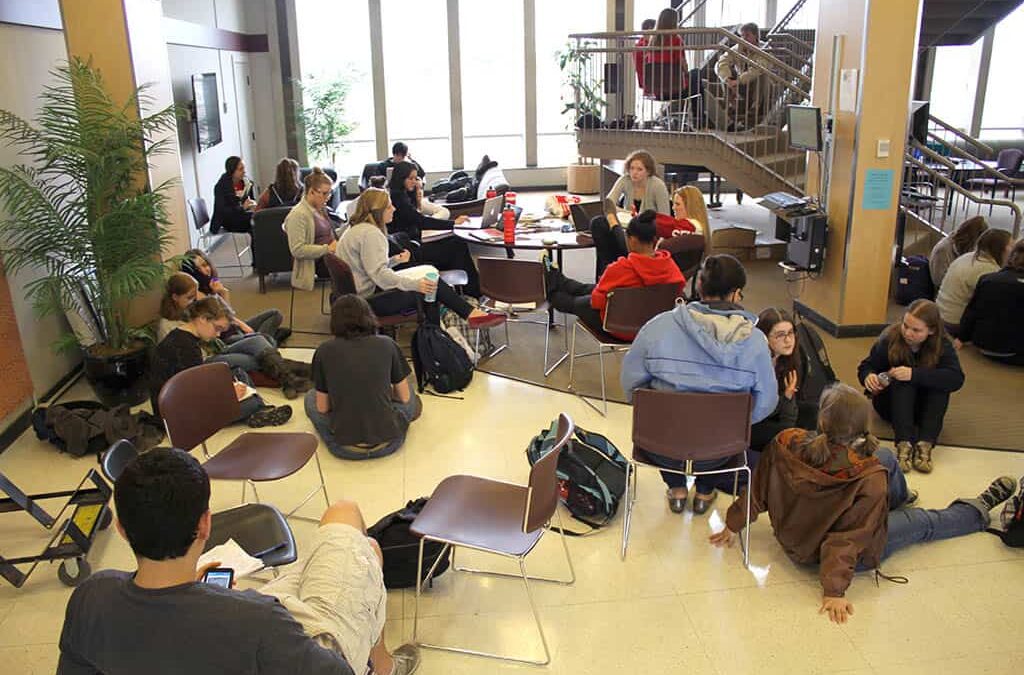Slayter Union was packed with students finding next year’s dorm through the housing lottery on Saturday, April 14.
Throughout the day, more than 1000 students – rising sophomores and juniors – came to pick their residences for the coming academic year.
The system is slightly different this year, with the lottery taking place over two days instead of multiple nights. Dean of Students Bill Fox, the former housing director, said that student reaction is generally positive. “There is more downtime. The setting [Slayter Union] is ideal… The atmosphere is more calm, with fewer people upstairs. Housing is giving people time and space to make a plan B.”
Student reactions to the two day lottery, however, were mixed. Sophomore psychology major Rae Walker said that the lottery was “annoying during the day. We’re missing other things.” Her roommate Sarah Blike, a theater and creative writing double major from North Canton, Ohio, agreed. “We’re here longer, spending the entire day in Slayter. And because of Relay for Life [the night before], there are people here who haven’t slept.”
Director of Residential Life and Housing, Kristan Housman, said that the process is still being refined. “The new schedule seemed to go well. We have taken some notes in regards to the timing of the day and the various lotteries to make improvements in the future.”
“It’s still stressful, because we had worse numbers, but it’s much better than last year, and more organized,” said rising junior Sara Wilkes, a biology major from Witchita, Kan. “You know what happens as a junior.”
Finding a roommate, for some, is just as difficult as finding a room. Many come into the lottery with one plan, and have to improvise based on room availability. “We had to find a third person on the spot, but that worked out fine,” Wilkes said.
According to Alex Tybl, a first year international studies and economics from Mount Lebanon, Pa., the current system is not the worst: “Obviously it’s not perfect, but it’s the fairest system we could have. I don’t think anything else would work as effectively.”
Tension rose as the day passed, and housing became much more limited. “We have not been able to house the entire sophomore class at the time of lottery last year, and we won’t be able to this year,” Hausman informed a group of waiting sophomores and first-years. These students are traditionally housed by July.
At the end of the day, only doubles in Crawford remained for later lottery numbers of general housing for the rising sophomores. Hausman estimated there would still be 60-70 students with pending housing residential status at the end of this year’s lottery.
The 2013 housing lottery was as unpredictable as its name suggests. Hausman credited the students with helping it go as smoothly as it did: “Overall, the students were in good spirits and were especially patient–which was very much appreciated.”

